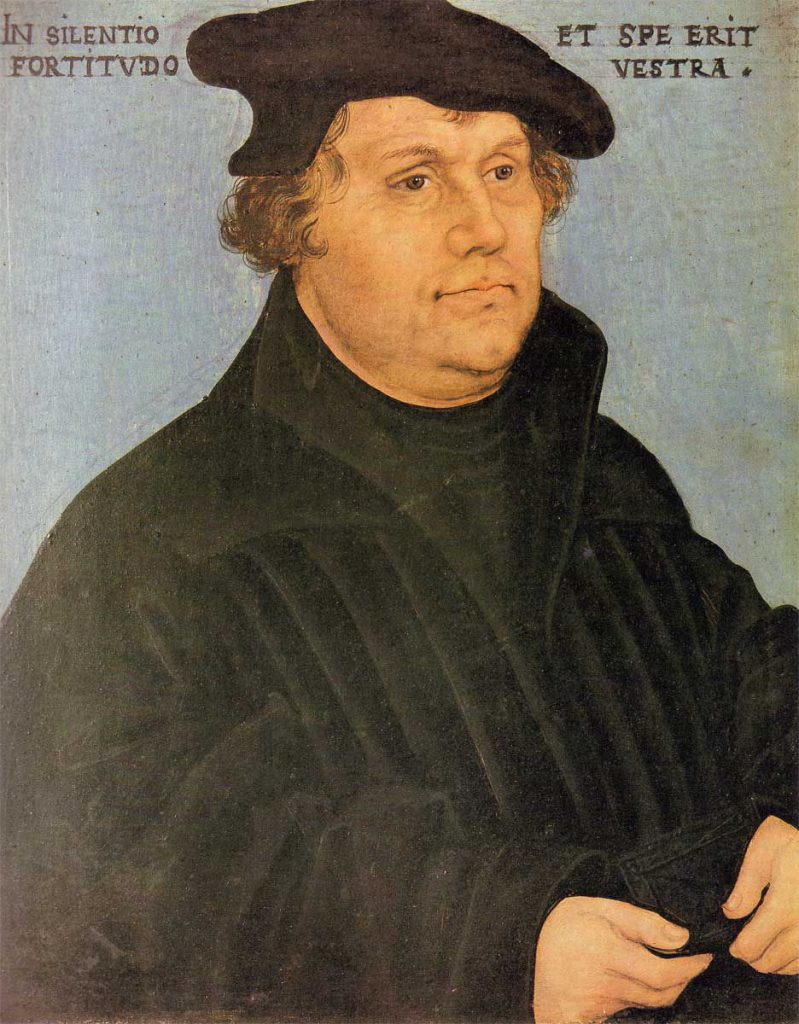News that Pope Francis will travel to Sweden in October for an event marking the 500th anniversary of the Protestant Reformation underlines the fact that the Catholic Counter-Reformation is over. Whether Protestants are prepared to say the same about the Reformation is for them to decide. A Catholic can only hope.
To say that these two momentous movements, Reformation and Counter-Reformation, are over is certainly not to deny their lasting impact on religion and the world. But, except for isolated pockets of resistance on both sides, Catholic-Protestant hostility is today a thing of the past.
This relationship is in a new era and has been for some time. The Oct. 31 commemorative event Pope Francis will attend in Lund, Sweden, is testimony to that.
It was on Oct. 31, 1517, that an obscure monk and theology professor named Martin Luther posted 95 theses — on a church door, so it’s said — setting out his views on controverted religious issues of that day. The ceremony in Lund, site of the founding of the Lutheran World Federation, will mark the opening of the anniversary year.
Martin Junge, the general secretary of the Lutheran federation, describes its approach to the anniversary as “ecumenical accountability.” Catholic Bishop Anders Arborelius of Stockholm, a convert from Lutheranism, voices hope that the gathering in Lund will help Lutherans and Catholics be “witnesses of Jesus Christ and his gospel in our secularized world” — a redirection of religious energy from fighting each other to presenting a united front against a common adversary.
By no means is this Christian reunion, which remains a goal Catholics and Protestants haven’t reached yet. But it is well beyond mere friendly mutual toleration.
Even in saying this, though, it’s important to realize that actual reunion, when and if it ever comes, will call for agreement on the essentials of faith, something which Catholics and Protestants still appear to be far from achieving.
And even before that can happen, there must be consensus on what those essentials are. To judge from recent statements of ecumenical dialogue groups, we have a long way to go just reaching that point.
Consider the relationship between Lutherans and Catholics. Catholicism and Lutheranism really do share many important doctrinal positions, but they are sharply divided on others, with no way of closing that gap currently in sight. The same is true of Anglicanism, so like Catholicism in many ways, so disastrously distant in others.
A recent joint statement by representatives of the Evangelical Lutheran Church in America and the U.S. Conference of Catholic Bishops illustrates the problem. It spoke of agreement between the two sides that “the Gospel, proclaimed in the Holy Spirit by the Apostles” is the “normative origin and abiding foundation” of the Church on earth.
But what is this Gospel — this message of Christian good news — and how are we to know for sure what it says? In seeking the answer, Catholics look to the Magisterium — the teaching authority of the pope and the bishops in union with him. But, precisely this view of teaching authority, especially the authority of the pope, lies at the heart of Catholic-Lutheran differences, with “no promise of imminent resolution,” as the joint statement acknowledged.
In the end of course, the reunion of Christians will be the work of God. But we Christians have much heavy lifting to do by way of cooperating with him. Here’s hoping the event in Sweden in October and all the other commemorations of the Reformation’s anniversary during the months ahead will contribute to that.

